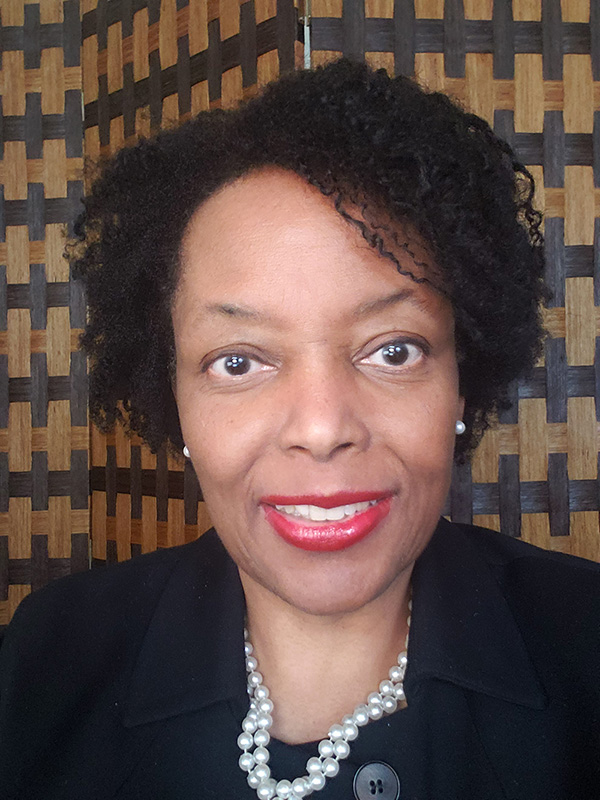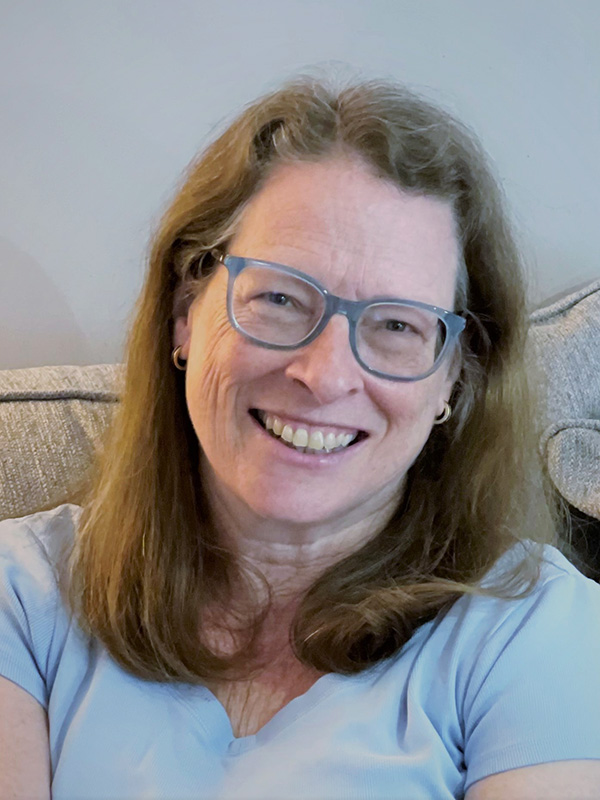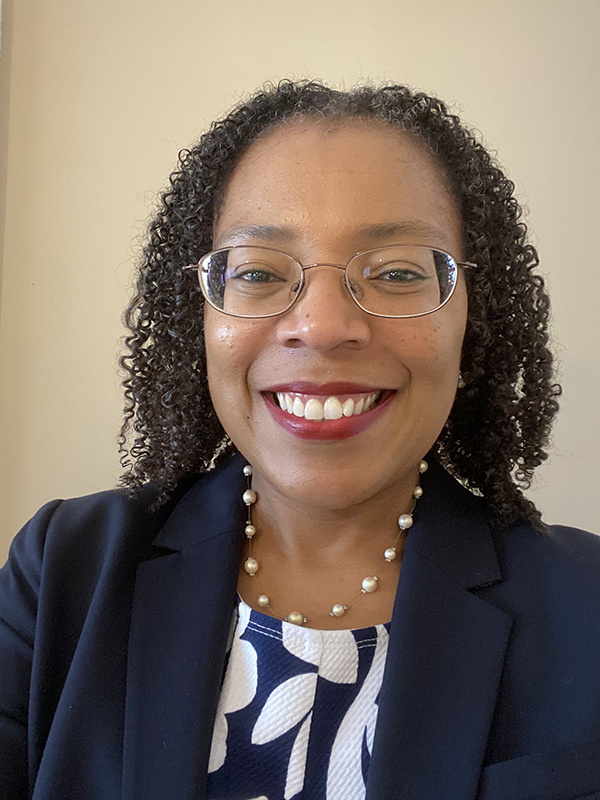Celebrating female planning leaders at M-NCPPC in Montgomery County
Women are an integral part of the workforce at The Maryland-National Capital Park and Planning Commission (M-NCPPC). As of Fiscal Year 2021, the latest data available, women made up 50.4% of M-NCPPC employees compared to 49.6% male employees. In the same fiscal year, M-NCPPC female career employees earned about $7,266 more annually than male employees on average—nationally, women still earn just 82 cents for every dollar a man earns.
In honor of Women’s History Month, we sat down with female planning leaders at M-NCPPC. We spoke with Montgomery County Planning Board Commissioner Tina Patterson, Commissioner Carol Rubin, Montgomery Planning Director Gwen Wright, and Deputy Planning Director Tanya Stern. Find out what led them to a pursue a career in planning and what advice they have for other women looking to join their ranks in leadership.

As part of my leadership advice to other women, I recommend having a network of mentors, choosing and engaging sponsors when appropriate and allowing flexibility to consider alternatives or options when plans go astray. — Tina Patterson, Montgomery County Planning Board Commissioner
“As a member of the Maryland Planning Commissioner (part of the Maryland Planning Commission Association) we’re considered ‘citizen planners’ and not planners in in the strictest sense. My experience and training include facilitating environmental and public policy issues with stakeholders about a variety of subjects including school selection sites, legislative recommendations considering COVID-19, Diversity, Equity, and Inclusion (DEI) for land use agencies, and site development. Since my appointment to the Montgomery County Planning Board, I have furthered my knowledge by completing training with NAOIP Virginia, attending conferences, and interfacing with colleagues and subject matter experts in other jurisdictions.
As part of my leadership advice to other women, I recommend having a network of mentors, choosing and engaging sponsors when appropriate and allowing flexibility to consider alternatives or options when plans go astray or when there are setbacks. Serving in a leadership capacity can be affirming, enjoyable, fast paced and at other times challenging, demanding/stressful. Keeping this in mind, I recommend taking time to recharge, reflect, relax as well as developing and maintaining a support system that will provide feedback and encouragement. My final recommendation is to be open to opportunities.”— Tina Patterson, Montgomery County Planning Board Commissioner

My favorite quote from William Shakespeare: ‘Love all, trust a few, do wrong to none.’ You never know whether that person who answers to you today will someday be your supervisor.”— Carol Rubin, Montgomery County Planning Board Commissioner
“Like many career paths, mine was not planned (pun intended). I joined the Commission in 2005 as an attorney in the Office of General Counsel. I had primarily focused on real estate transactions, and the Commission offered some complex and interesting projects. It also gave me the opportunity to return to public service after an 8-year adventure in the private sector. Several years later, another new opportunity became available–to lead the Montgomery Land Use Division supporting the Montgomery County Planning Department and the Planning Board. And 10 years later, Montgomery Planning Director Gwen Wright gave me the opportunity to shift temporarily into the Planning Department as Acting Deputy Director. I found the experience working within the Department re-energizing, so I worked with Gwen to figure out a next step. By the way, I will always be grateful to her as a mentor and as a friend. My career has been a series of opportunities – some offered and some created, which has fed my professional and personal growth. I didn’t always know where it would lead me, except forward. And I don’t regret any of the paths I have taken, even though some were not so smooth–I have learned from each.
I have several leadership lessons that I believe apply to any career:
- Look for mentors everywhere and always. I intentionally used the plural because we should not assume that one person will have all the answers. And relationships go both ways. As you will learn from your mentors, keep in mind that your mentors will also learn from you. In fact, I count both my daughters as mentors. They have taught me incredible life lessons. Generally, I have found that my mentors tend to be other women since we seem to be wired similarly.
- Lead from behind. Respect requires acknowledging others’ opinions; mostly considering them before you form your final opinion on a matter. You will not learn from others if you do not listen; and never turn down the opportunity to listen. My favorite quote from William Shakespeare: ‘Love all, trust a few, do wrong to none.’ You never know whether that person who answers to you today will someday be your supervisor.”
— Carol Rubin, Montgomery County Planning Board Commissioner

When one pursues any career, I think that a key element is passion. Passion for the goals you are working to achieve and an understanding of how your work fits into a bigger picture.— Gwen Wright, Montgomery Planning Director
“My career in planning happened by accident. My academic training was in architecture and architectural history–I spent the first 20+ years of my career work exclusively in historic preservation. What drew me to historic preservation and, ultimately, to planning was an intense desire to improve the built environmental and to create communities that are welcoming, beautiful, sustainable and reflect the history and the dreams of the people who inhabit them. Through my work in Galveston, Texas, Montgomery County, Maryland and Alexandria, Virginia, I feel that I have been able to achieve this goal. I feel very fulfilled when I move through communities like Takoma Park, Kensington, Wheaton, Silver Spring, Bethesda, Potomac Yards, Old Town North, and others and see the tangible results of my work and the great communities that I have helped to preserve and build.
When one pursues any career, I think that a key element is passion. Passion for the goals you are working to achieve and an understanding of how your work fits into a bigger picture. It is so important to arrive at work every day feeling inspired and ready to be creative. Leadership is about listening carefully to colleagues and other stakeholders while still being willing to ‘go out on a limb’ and offer new ideas and solutions to problems that are presented. In essence, I see strong leaders as working collaboratively with others but also pushing the envelope and conceiving of/furthering new concepts.”
— Gwen Wright, Montgomery Planning Director

In terms of leadership, there are a growing number of women leaders in the planning field to whom you can look to as models and mentors. Talk to the leaders in your organization or feel free to ask for informational interviews. — Tanya Stern, Montgomery Planning Deputy Director
A design background is not necessary to pursue planning as a career. Having a liberal arts background and an English degree was very useful when I made the transition to planning because I already had strong analytical and writing skills. The planning profession also is broad in terms of specialty areas. You have lots of options to find a good fit for your interests and skills: community planning; transportation planning; housing; environmental planning; economic development; historic preservation; real estate; GIS. Regardless of which specialty you pursue, a commitment to serving the public is critical. Your work will affect the daily lived experiences of the community for years to come. In terms of leadership, there are a growing number of women leaders in the planning field to whom you can look to as models and mentors. Talk to the leaders in your organization or feel free to ask for informational interviews. Leadership is ultimately about managing people, so that the organization can be effective in serving the community. It is a skill to learn through training, experience, and lots of reflection. Even if you are not a manager, look for opportunities to grow your leadership skills, whether for a project team, a committee, or a special initiative.”
— Tanya Stern, Montgomery Planning Deputy Director